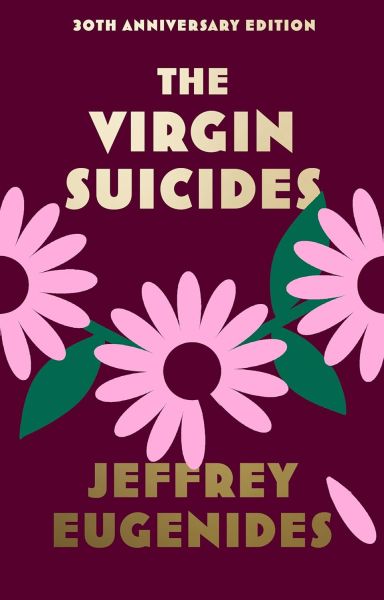My Reservations about the Virgin Suicides
After the murder of little six-year-old JonBenét Ramsey in 1996, TV news and magazines worked the story to death. They shamelessly ran video-footage of her, dressed in her beauty-pageant finery, giving her a maturity and sexuality that worried me. Her mother Patsy basically exploited the little girl for all she was worth.

Patsy even made JonBenét sing. While the little girl's whiny, squeaking voice annoyed me, it also brought her back down to earth, to something more typical for a little girl—rather like Betty Boop and Olive Oil, but flat and personless. Media-exploitation of JonBenét sickened me, even if it no longer mattered, after her life had ended. Tabloid newspapers even displayed the underpants she wore on the night of the murder. You expect some lurid attractions for a movie star, like Marilyn Monroe or Grace Kelly, not so much for a little girl.
Reading The Virgin Suicides reminds me of JonBenét Ramsey, inasmuch as the author Eugenides violates the personal space and lack of personhood of high school girls. The main characters, the suicidal Lisbon sisters, seldom express themselves; but when they do, they sound inane, clichéed, and stilted—a few, trendy mantras. Like poor little show-girl JonBenet, the Lisbon sisters have to act more grown-up than they really are.
Eugenides invades their bedrooms, bathrooms, clothing, and personal articles, He allows them little real dialogue and no sense of personhood. The curious boys admire from a distance, speculate, and reminisce about them, but Eugenides gives them little enduring insight. I just shook my head while I read at Virgin Suicides. I felt like I was watching side-by-side carrousels rotating endlessly, while boys and girls pass in and out of each others' lives. Not even the trauma of five suicides endures in any personal way.
Why is this book so popular, and who reads it? The critics writing in all the major newspapers and magazines went overboard, saying they all loved it. If they loved it, then middle-brow pedestrians must say they loved it, too, or face the consequences. If someone asked them, "Did you read The Virgin Suicides?" They better say yes, or lose the respect of their social-group.
For enduring answers, I turned to the literary-court of public opinion—to Amazon's book-reviews. Anyone can write a "Customer Review" for a book. So far, Amazon has logged 8753 reviews for The Virgin Suicides—2133 of them negative, which seemed like a lot. Many of them touched on legitimate complaints:
- the conscious over-hyping by book-reviewers working for Establishment periodicals;
- making suicide artsy and trivial;
- As one irate reviewer wrote, "Who can't write a good book? Here's what you do: 1) Set up a familiar milieu; 2) Have something horrible or shocking happen; 3) Have people spend the rest of the book wondering why it happened 4) Narrate everything in an artsy, literary way."
- Other reviewers complained,
-a)"The ending is unsatisfying and inconclusive."
-b) "Voyeuristic;"
-c) "Hours of pointless details;"
-d) "Long sentences, a thousand characters, and a thousand pieces of bland, boring details."
But if Eugenides is a clever as I think he is, he knew how to score with the public. Reviewers said they had no idea who the Lisbon sisters were. I guess you could say that about the Great American public—living behind closed doors. As a writer, myself, I have to applaud Eugenides's intuition.

